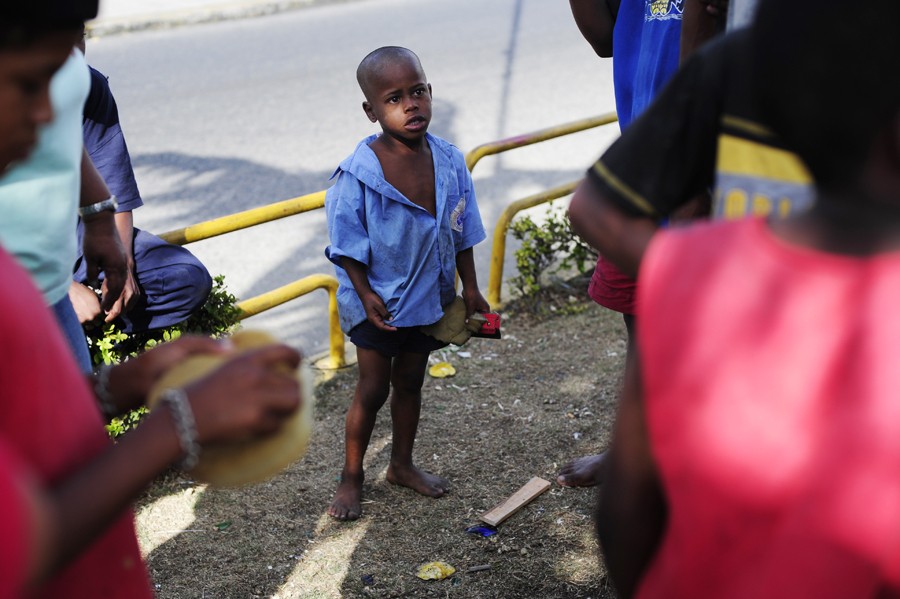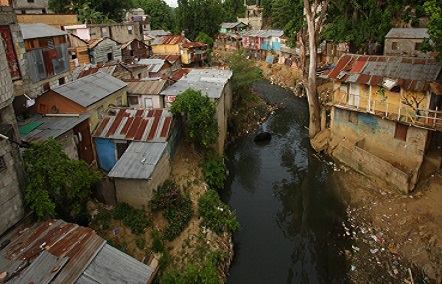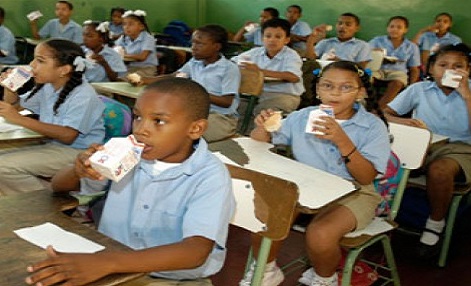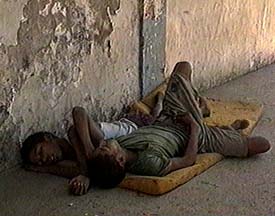THE STREET CHILDREN OF DOMINICAN REPUBLIC
Every night, there is a heart breaking back drop to the nightlife all across the Dominican Republic. You see kids, sometimes as young as 4 and 5 years old in the streets at night.
You see them at all hours of the night with no parent or adult supervision in sight. They travel together in packs of 4 or 5 begging, hustling shoe shines or trying to clean wind shields to earn a few pesos for food.
You see them on the streets after midnight mingling with street walkers and other dangerous, rough looking street people on the streets of cities like Santo Domingo, Sosua, Puerto Plata and Santiago. No parent or guardian in sight. No one to guide or protect them.
The locals call them “Palomos,” a Spanish word for “dove.” The slang definition translates to rascals, pests or nuisances. Others simply call them “niños de la calle,” or street children.
The "palomos" or street kids have no legal status. No government agency attempts to count them, and there are few or no public services available to them.
They are easily lured into illegal activity by predators that prostitute them or use them as street level drug runners. The Police do their best to stop these practices but there just isn’t enough manpower.
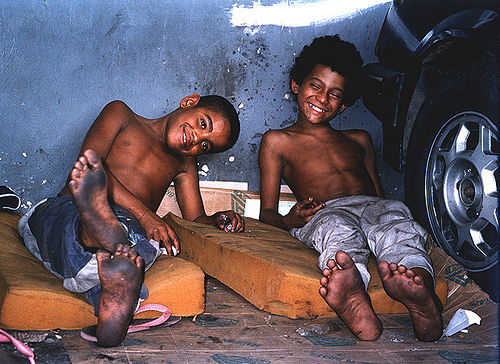
They have no parents or their family has abandoned them. They have no one to feed or protect them. Nowhere to call home.
If they live to adulthood, it's likely they will exploit the next generation of kids the same way they were exploited.
As time passes, they will switch from being victim to perpetrators of crime. The longer they stay in the street, the more likely they are to start using and selling drugs, then escalate to armed robbery or other violent crime.
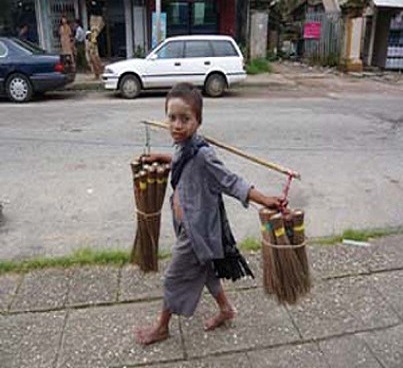
Some are Dominican, some Haitian and some are both. Many were born here, but few can legally prove their citizenship and are subject to deportation to Haiti whether they have family there or not. They have no legal status or rights.
The streets of the Dominican Republic are a dangerous place. These children encounter beatings, robberies, drugs and are have their desparation preyed on by sex tourists.
Some scrounge what money they can, shining shoes or begging. Some work as indentured servants 14-18 hours a day peddling tourist trinkets in exchange for a few pesos. Bouncers and other bar workers routinely chase or rough them up when they are caught bothering customers on the sidewalks in front of tourist bars and discos.
It's a childhood without kindness, affection or love.

Many sleep in tin roof shacks in filthy barrios (slums) that crop up in every city of the Dominican. Many sleep in abandoned buildings they share with homeless adults, drug addicts and other dangerous undesirables. They squat at night anywhere they can get out of the rain and get a little sleep. Many property owners hire thugs to inspect their properties and beat any street children squatting in abandoned buildings or buildings under construction.
They sleep in squalor under a leaking, rusted tin roof covered in insect bites from the very same mosquito that causes Dengue fever, Zika and Chikungunya. They sleep anywhere they can to keep the rain off them until they return to the street the next day.
.
Every slum/ barrio has a stream or “river “running through it. This is not a river kids can swim in or have a tire rope swing or use to fetch water to cook with. It’s a disease ridden river of sewerage that runs through the barrio.
Mosquito borne disease like dengue fever, chikungunya and zika are rampant. Many of the kids get hookworm from walking barefoot in areas with human waste.
None of these street kids go to school and the outlook for their future is bleak. Many never see adulthood
AmeriHand is working in conjunction with the CDDH (El Comité Dominicano de Los Derechos Humanos) (The Dominican Commission on Human Rights) to do something positive to get these kids off the street and give them a fighting chance.
Together, we are using the national past time (Baseball) as a catalyst to get the kids off the streets at night and away from the predators .
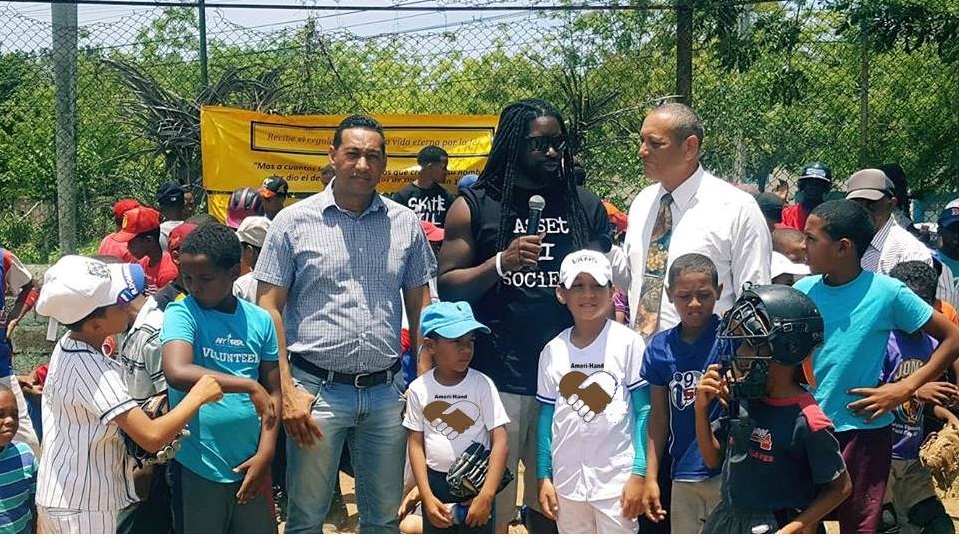
All Dominican boys love baseball and are instantly drawn to the lights of the baseball diamond. We are using organized baseball to get them off the street both day and night. But we need donations for equipment, uniforms and to pay for the lights and local staff to keep the league operational.
Besides offering baseball to lure kids off the streets, we try to return the younger kids to school. In the Dominican Republic you can’t go to school without shoes and a school uniform.
We are working with other NPOs to provide shoes and unifoms to every child who wants to go to school and provide access to nutritious food and basic healthcare..
We are in the process of opening a non profit restaurant that will provide all school children a free nutritious breakfast every Morning. We will operate the restaurant as a normal restaurant for Lunch and Dinner with the profit covering the expense of the free breakfast program. We believe we can operate the program without any repeated investment after initial start up costs and may even turn a profit.
Any additional profit will go toward shoes and school uniforms for the children. The restaurants will also provide work and job training for older street kids who are too old and far behind to return to school
We are starting the program in the North coast city of Sosua, but plan to take it to the larger cities in coming years.
Besides free breakfast for the younger kids, we have plans for a dormitory to provide a safe haven to sleep for the street kids. A safe place to sleep and a hot meal every Morning until we can find a permanent home or reunite them with their family.
Amerihand in conjunction with the CDDH will offer older street kids membership in a mentor / apprentice program to give them some income and the opportunity to learn a trade. Many of the kids are too old and too far behind to go back to school. Teaching a trade is the best option.
We have tourist resorts on board as well as construction companies and local restaurants. The kids earn a wage, get off the streets and learn a trade to enable them to support themselves in the future as a productive member of society.
We are also trying to get some immigration attorneys and researchers on board so those “Palomos” who have no papers can establish their citizenship and eliminate the threat of deportation to Haiti that hangs over their heads on a daily basis.
We have teamed up with Manuel “Manny” Brito from the Dominican Republic Human Rights Commission to help. Manny has graciously agreed to join the Board of Directors of AmeriHand. Manny was instrumental in formulating the plan of action to get “Palomos” off the street and playing sports as well as forming the apprentice program.
Having a Dominican official as a board member is very advantageous in allowing us to cut through red tape and implement direct action.
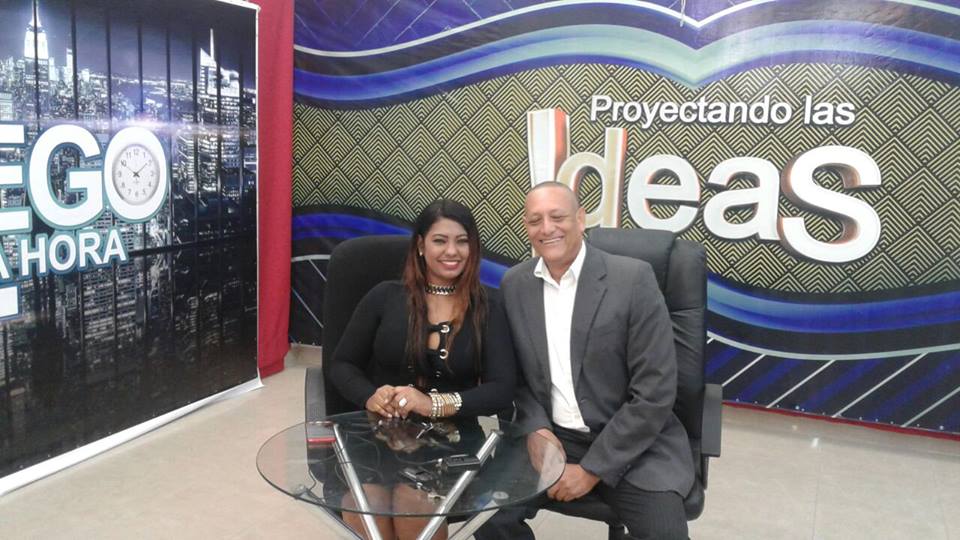 AmeriHand Board Member Manuel “Manny” Brito on Dominican TV
AmeriHand Board Member Manuel “Manny” Brito on Dominican TV
raising awareness of the plight of “Palomos” (street kids).
At AmeriHand we feel that no child is beyond redemption. Please help us get these kids off the street and back in school or headed in the right direction.
Objectives of AmeriHand street kids program
- To show concern and love to street children
- To create awareness about the growing problem of street kids
- To try and re-create a link between street children and their families
- To counsel children and families and encourage reunification
- To create a safe refuge whenever possible
- To encouage and assist those children who wish to be re-united with their families
- To assist in health care and nutrition of street kids
- To promote educational opportunities for street children
- To teach trade skills to non school going children and try to prepare them for a trade and transition to becoming a productive, responsible citizen
- To help legitimize street kids as bona fide citizens and eliminate deportation risk
Please help with a tax deductible donation. Any amount is appreciated. $5, $10 or $20 is a huge help. A small donation goes far in the Dominican Republic and helps makes a big difference.
Make a $250+ donation, and you have the option to place your name and photo on the AmeriHand donor Wall of Fame.
We also accept property donations. Gently used clothing is always needed for the kids as well as baseball or other sports equipment, desktop and laptop computers, tablets, books or other learning materials we can use to help educate and get a child off the streets and back on the right path. ( Amerihand.org/Donate_Goods.html )
You can also include a gift in your will to leave behind a legacy of caring. Information can be found at Amerihand.org/will_gift.html
Contact us at amerihand.org/contact.html for information on the Palom0 (street kid) or any other program.
Thank you in advance for your help
Please watch a short video about the abject poverty many Dominican children live in.
